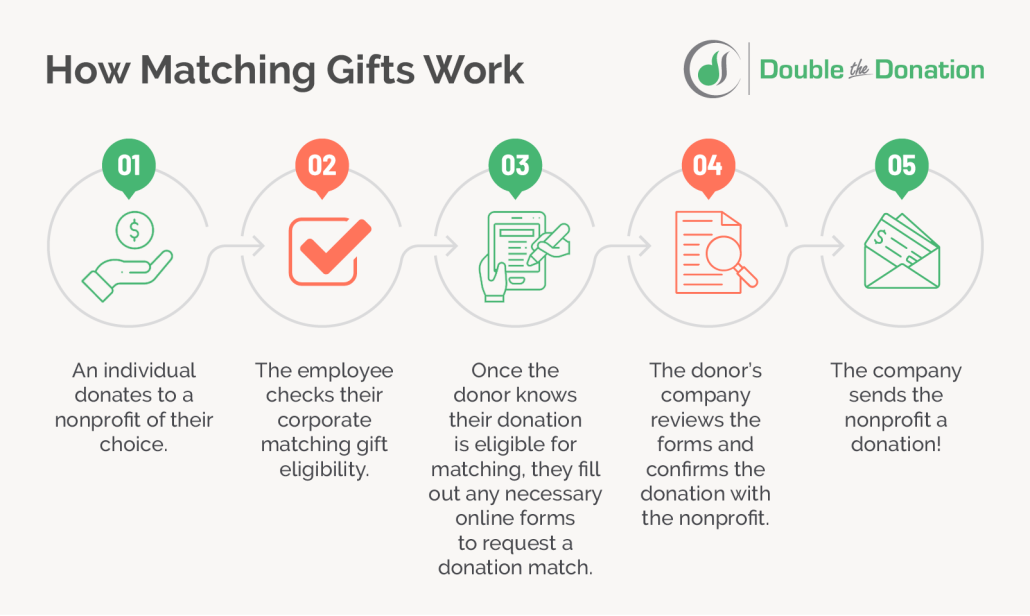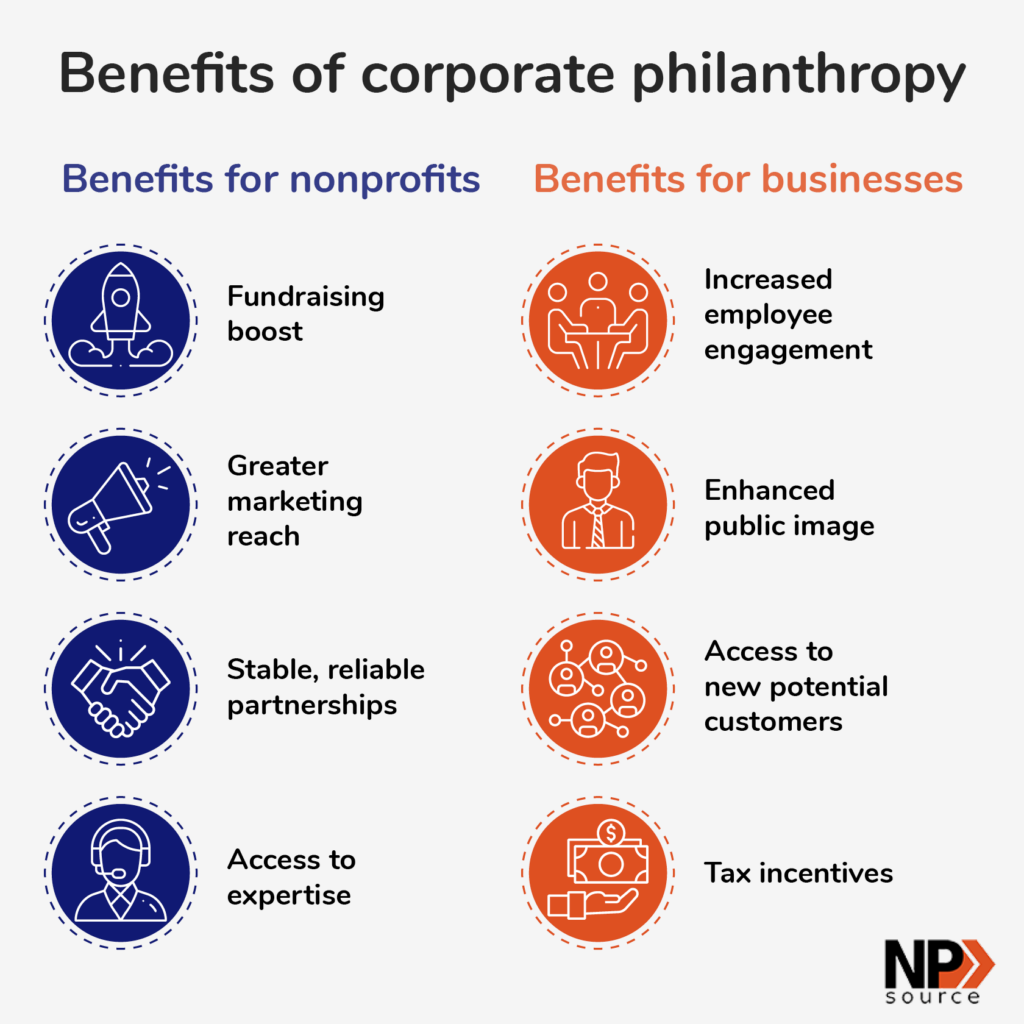The Role of Corporate Philanthropy in Fostering Sustainable Company Practices
Company philanthropy has become a crucial strategy for companies intending to integrate sustainability right into their procedures. By straightening business objectives with ecological and social initiatives, organizations can promote much healthier ecological communities. This strategy not just boosts corporate online reputation yet likewise reinforces stakeholder partnerships. Nonetheless, the real level of its impact on lasting company success stays to be explored. What cutting-edge techniques are being embraced because of this?
Understanding Business Philanthropy and Its Value
Business philanthropy works as a necessary mechanism where businesses can add to societal health while enhancing their very own reputations. This practice entails companies alloting sources, such as funds, time, or knowledge, to sustain neighborhood efforts, charitable reasons, or social programs. By taking part in kind initiatives, business can resolve pushing social issues, such as education, healthcare, and ecological issues, therefore playing a crucial duty in promoting favorable modification.
Furthermore, company philanthropy can boost staff member morale and bring in ability, as individuals increasingly look for to help socially liable organizations. It can likewise strengthen customer commitment, as customers like brand names that show a commitment to making a distinction. Ultimately, recognizing the relevance of business philanthropy depends on recognizing its double benefits: enriching neighborhood well-being while concurrently enhancing business trustworthiness and credibility in the eyes of stakeholders. This positioning of social duty with business interests highlights its value in today's corporate landscape.
The Connection In Between Company Philanthropy and Sustainability
While several companies participate in philanthropy to improve their public photo, a much deeper connection exists between business philanthropy and sustainability. Business philanthropy often aligns with sustainable methods by supporting campaigns that deal with social and environmental difficulties. They contribute to a healthier community and society when services invest in neighborhood jobs, sustainable energy, or academic programs. This commitment not only fosters goodwill yet additionally reinforces stakeholder connections, improving brand loyalty.

Case Studies: Successful Corporate Philanthropy Initiatives
Numerous business have successfully incorporated kind initiatives right into their company strategies, demonstrating the tangible advantages of such commitments. Microsoft has actually launched many programs, such as its AI for Planet effort, which supports environmental sustainability via technology. This technique not just help preservation initiatives however also improves Microsoft's track record as a leader in business responsibility.
Unilever's Lasting Living Strategy highlights ecological and social effect, aligning its philanthropy with organization goals. By funding jobs that improve hygiene and hygiene, Unilever strengthens its brand while contributing to worldwide health and wellness.
Another remarkable instance is Patagonia, which promises 1% of sales to environmental causes. This commitment resonates with customers, promoting loyalty and driving sales.
These study highlight that effective business philanthropy can generate monetary returns while advertising lasting techniques, strengthening the concept that honest service practices are beneficial for both culture and base lines.
Structure Stronger Stakeholder Relationships Through Philanthropy
Philanthropy serves as a necessary device for companies seeking to enhance their connections with stakeholders, as it cultivates trust and shows a commitment to social duty. By taking part in philanthropic initiatives, businesses can attach with neighborhood communities, improving their credibility and motivating stakeholder commitment. This involvement commonly brings about purposeful interactions, creating a feeling of shared worths between the company and its stakeholders.
Moreover, humanitarian initiatives can address particular community demands, allowing companies to contribute positively to societal difficulties. This involvement not just showcases a company's honest stance however also aids in bring in and preserving customers who focus on social responsibility.
In addition, employees commonly feel more motivated and involved when they see their company proactively joining humanitarian activities, causing a much more effective office culture. Corporate philanthropy comes to be a strategic avenue for constructing stronger, more durable partnerships with varied stakeholder teams.
Measuring the Effect of Business Philanthropy on Service Success
The connection between business philanthropy and stakeholder engagement establishes the stage for examining its influence on total service success. Organizations usually determine this effect through different metrics, including brand name online reputation, staff member fulfillment, and consumer loyalty. Philanthropic efforts can boost a business's picture, fostering count on among customers and capitalists alike. Additionally, engaged workers have a tendency to show higher spirits and efficiency, directly correlating to boosted business performance.
Measurable evaluation can likewise be utilized, with organizations evaluating economic returns versus humanitarian expenditures. Study suggests that companies with solid humanitarian dedications often experience greater supply performance and reduced volatility. Furthermore, qualitative analyses, such as stakeholder comments, can provide understandings right into community perceptions and lasting relational benefits.
Eventually, measuring the influence of business philanthropy requires a multifaceted approach, incorporating both measurable and qualitative information to assure a detailed understanding of its impact on company success. corporate philanthropy.
Frequently Asked Concerns
Just How Can Local Business Take Part In Corporate Philanthropy Properly?

What Are Usual Misconceptions Regarding Company Philanthropy?

How Does Business Philanthropy Impact Employee Spirits?
Company philanthropy positively affects staff member morale by promoting a sense of purpose, enhancing job contentment, and promoting commitment. Staff check out this site members commonly feel more engaged and inspired when their company adds to social reasons, creating a helpful workplace.
What Are the Tax Benefits of Business Philanthropy for Organizations?
Corporate philanthropy provides considerable tax obligation advantages for businesses, including deductions on charitable contributions and prospective reductions in gross income. These motivations urge companies to take part in social efforts while concurrently boosting their economic standing.
Just How Can Firms Pick Reliable Philanthropic Allies?
Firms can pick efficient humanitarian visit homepage companions by examining positioning with their values, evaluating impact potential, analyzing financial transparency, and cultivating solid interaction. This tactical method enhances collaboration and warranties common advantages for both celebrations involved.
Company philanthropy offers as a necessary system through which businesses can add to social well-being while boosting their very own reputations - corporate philanthropy. Ultimately, recognizing the value of corporate philanthropy exists in recognizing its double advantages: improving neighborhood welfare while simultaneously boosting company integrity and trustworthiness in the eyes of stakeholders. While many companies involve in philanthropy to enhance their public photo, a deeper link exists in between business philanthropy and sustainability. The link between company philanthropy and stakeholder engagement establishes the stage for reviewing its effect on total company success. this contact form Company philanthropy provides considerable tax obligation benefits for organizations, including deductions on charitable contributions and possible decreases in taxable revenue